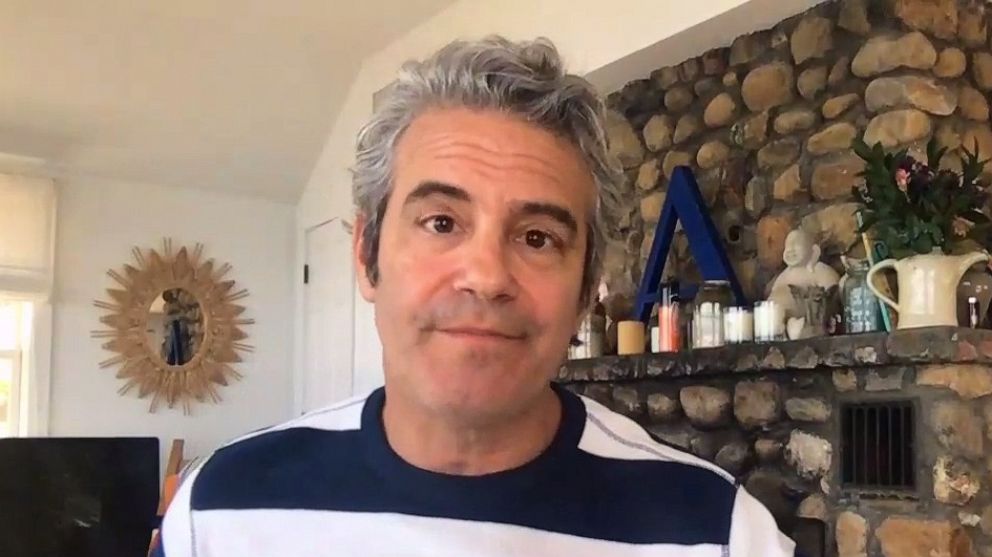Andy Cohen calls FDA rules on gay men donating plasma for COVID-19 ‘discriminatory’
"What a loss," Cohen said. "I can't share my plasma and possibly help anybody."
Despite testing positive for COVID-19 antibodies, Andy Cohen says he was denied the chance to donate plasma because he is an openly gay man.
On March 20, the Bravo personality revealed in an Instagram post that he tested positive for COVID-19 after days of "not feeling great."
After self-isolating and recovering from the novel virus, Cohen reunited with his year-old son Benjamin and returned to hosting "Watch What Happens Live" from his New York City apartment.
Nearly a month later, in April, Cohen said on his show that the FDA restricted him from donating his COVID-19 antibody-rich plasma because he did not meet the requirements to donate as a gay man.
The restriction was born out of the HIV/AIDS crisis of the 1980s when limited testing technology existed to screen blood for HIV. In 1983, the U.S. Food and Drug Administration (FDA) implemented a lifetime ban on blood donations from all men who had sex with men after 1977.
That policy was upheld until 2015, when the FDA revised the guidelines from a lifetime ban to a 12-month deferral period. This meant that gay and bisexual men had to abstain from having sex with another man for at least 12 months before they'd be allowed to give blood.
On April 2, amid the COVID-19 crisis and calls from Surgeon General Jerome Adams for healthy Americans to give blood and avert a national shortage, the FDA revised the deferral period down to three-months.
The most recently revised guidelines for gay and bisexual men also extend to women who have had sex with men who have sex with other men, as well as anyone who has had recent tattoos and piercings. The FDA said the changes would be implemented immediately and are expected to remain in place after the COVID-19 pandemic ends.
Cohen opened up on "The View" Tuesday about his experience being turned down to donate plasma despite high demands for blood and plasma donations.
"I knew that gay men were not allowed to give blood. This has been something that has been going on for years," Cohen said. "It was something that I took as fact in the early days of HIV in the '90s if I ever tried to give blood. The testing for HIV was far less sophisticated and accurate and fast as it is now."

Cohen said that he was "surprised" and "hurt" that he was restricted from donating plasma through a program with Mount Sinai Health System.
"I just thought, 'Well, this is crazy.' Technology has come so far that you've got to be looking at this," he said.
Cohen said he took another test with his doctor last week.
"The doctor said, 'Oh my God, your antibodies are so robust,' which she found to be highly unusual four months after having originally testing positive for COVID," he said on "The View."
"I thought, 'What a loss. Here I have these robust antibodies and I can't share my plasma and possibly help anybody.' So, extreme disappointment," he added. "I think that this is something that I've been speaking up about because I think that ... we need help here."
Co-host Sunny Hostin suggested that the federal guidelines seem to be "discriminatory" and said "there's some work that needs to be done in this area."
"It is discriminatory," Cohen said. "I don't understand it."
He said he thinks the FDA is "worried about HIV" showing up in blood.
"I'm HIV-negative," he said. "You can find that out and you can test my blood a couple times before putting it into a system."
Every episode of ABC's award-winning talk show "The View" is now available as a podcast! Listen and subscribe for free on Apple Podcasts, Google Podcasts, TuneIn, Spotify, Stitcher or the ABC News app.




